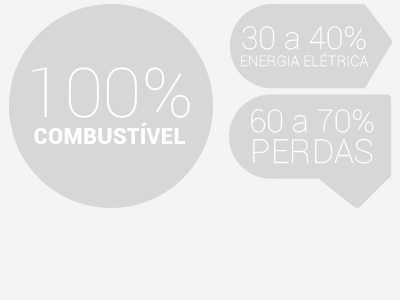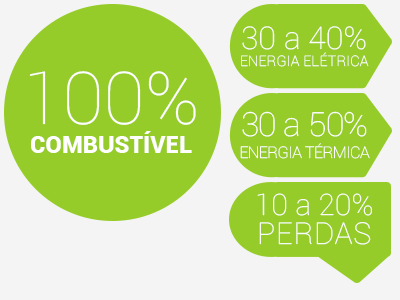- Gas Distributed Generation Solutions
- +55 (21) 3035-4040
Qualified cogeneration

Distributed generation with biogas
9 de December de 2017
Distributed Generation with natural gas
17 de December de 2017Energy cogeneration is the process of simultaneously generating two or more energies from the same energy source.
Qualified cogeneration is a concept defined by the Brazilian regulatory agency ANEEL (Agência Nacional de Energia Elétrica [National Agency for Electric Energy]) in Normative Resolution n# 235/2006, which establishes a minimum total energy efficiency for the generation of electric and thermal energy from natural gas.
As a result, the cogenerator adheres to the incentive policies established by the Brazilian government, which can be classified, for example, as micro or small-scale, and benefit from regulatory resolutions 482/2012 and 687/2015, for which it is possible to export surpluses generated by qualified cogeneration.
Generation
In an efficient electric power generator, only 40% of the total energy of the fuel is effectively transformed into electricity. The other 60% represent lost energy, mainly in the form of heat.
Cogeneration
Energy cogeneration is the process of generating electric energy combined with the use of the thermal energy dissipated by the generator, which allows to achieve up to 90% of total energy efficiency.
Benefits
The heat produced by the generator, either by the exhaustion of the gas or by the coolant of the radiator, can be used to produce hot water for pool or bath heating, for steam generation for industrial processes, and for ambient cooling through absorption chillers. The process carries several benefits: chillers de absorção. O processo tem uma série de benefícios:
- Increased efficiency in energy generation
- Optimized energy consumption, reducing waste.
- Greater fuel savings.
- Reduced pollutants emission.
- Reduction or elimination of other sources of thermal energy


